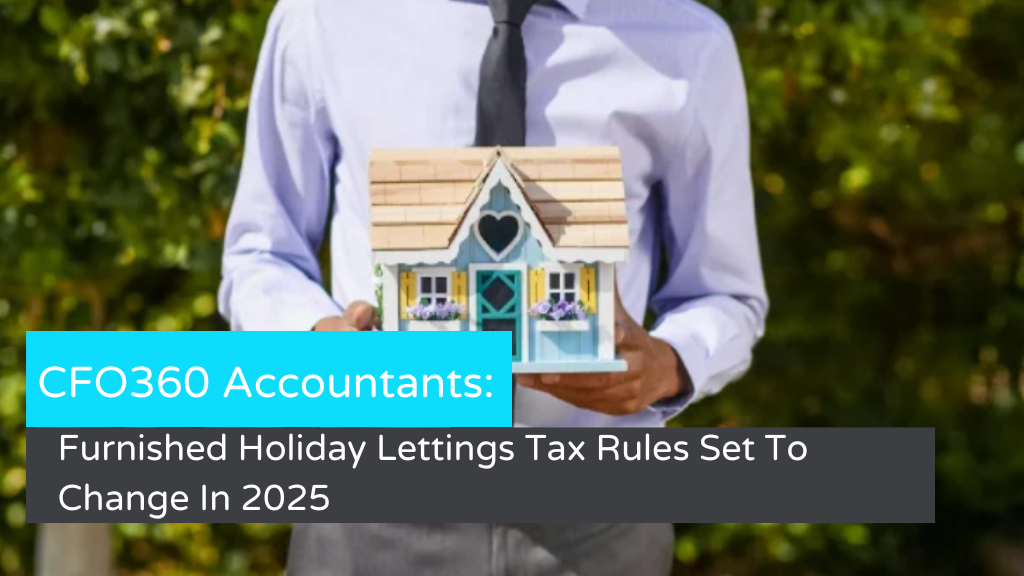The tax regime for Furnished Holiday Lettings (FHLs) is set to be abolished from April 6, 2025, with some key tax breaks being removed by the Chancellor in the Spring Budget on March 6 in a move which could raise as much as £300m extra in tax each year. The changes will make it much harder for individuals providing holiday lets to reclaim some of the key costs associated with their letting business, and could make it more difficult to make these types of lettings profitable.
Around 127,000 properties in the UK were reported as FHLs on the 2019/2020 tax returns, but the measure is designed to encourage those offering their properties for rent as FHLs to instead offer them for long-term rent. These measures could have the desired effect, or it could result in some of those landlords affected deciding to sell up instead as it is expected the regime would bring FHLs in line with the tax treatment of long-term rental properties, but the draft legislation surrounding this change hasn’t yet been announced.
Even so, experts predict the changes could make a big dent in an FHLs current profits. At present, interest on mortgages on FHL properties can be deducted from the rental income for individuals. From April 6, 2025, interest on mortgages for businesses operated by individuals could no longer be deducted if the regime is aligned with longer-term rental property. Instead, a 20% tax credit would be given against the owner’s tax liability, which for higher rate taxpayers will reduce the tax relief for interest to 20%, rather than 40%.
What else will change?
FHLs owned by individuals currently enjoy a lower capital gains tax on their sale as they are classified as trading assets which are subject to business asset disposal relief when they are sold. This means that where the FHL qualifies, with gains up to the lifetime limit of £1m, they would be taxed at 10%.
From April 6, 2025, the business asset disposal relief won’t be available on FHLs owned by individuals, so they will face CGT of 18% of profits in the standard rate band, or 24% for profits in the higher rate band once the property is sold.
Also, under the current regime, FHLs would qualify for CGT rollover relief if a “replacement qualifying asset” is bought with the proceeds of the sale. But this benefit will also be removed fromApril 6, 2025.
Are there other allowances that will be removed?
Other changes that allow the offset of running costs could also impact the profitability of FHLs. Under the current regime, any expenditure on an FHLs can get tax relief as capital allowances. This will also be removed from April 6, 2025, although there may still be a way of reclaiming the cost of replacing domestic items against profits. Landlords can claim tax relief for replacing broken furniture and other domestic items under the Replacement of Domestic Items Relief, but this doesn’t apply to furnishing a property at the start, only for items that need to be replaced.
Toby Tallon, Tax Partner at professional services and wealth management group Evelyn Partners, said: “For second homeowners who like to make extra money out of their holiday home by putting it on AirBnB while they are not using it, it will simply make this a less lucrative ‘side hustle’. If that is a make-or-break issue for them and they don’t want to be long-term private landlords, then we could see some of these properties being sold.
“Recent changes to other areas of tax have benefitted FHL owners, which may have influenced the Government in its decision to withdraw the benefits. FHLs qualified for capital allowances, so the full expensing change last year increased tax deductions available to owners. During the pandemic, FHLs that paid business rates became eligible for grants targeted at small businesses. The rules to qualify for business rates rather than council tax were tightened in 2023. For those registered for VAT, they were also eligible for the temporary reduced rate of VAT for hospitality businesses.”
None of these changes will apply to FHLs owned through a company structure, so these properties would not be affected. We will have to wait to see the draft legislation until we know exactly what the impact of the changes will be on individuals running FHLs.
We can help you
If you own an FHL and want to find out what your options are before the rules change, then please get in touch with us and we will be happy to help you.









